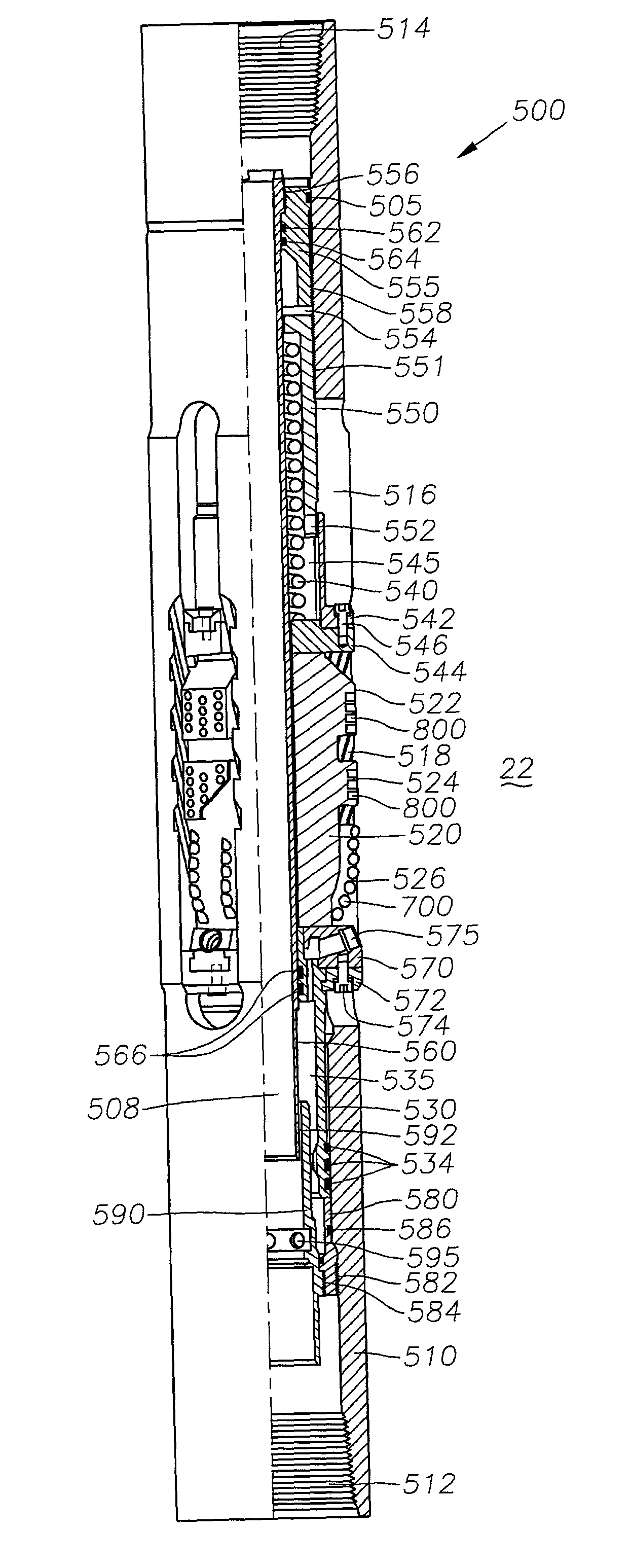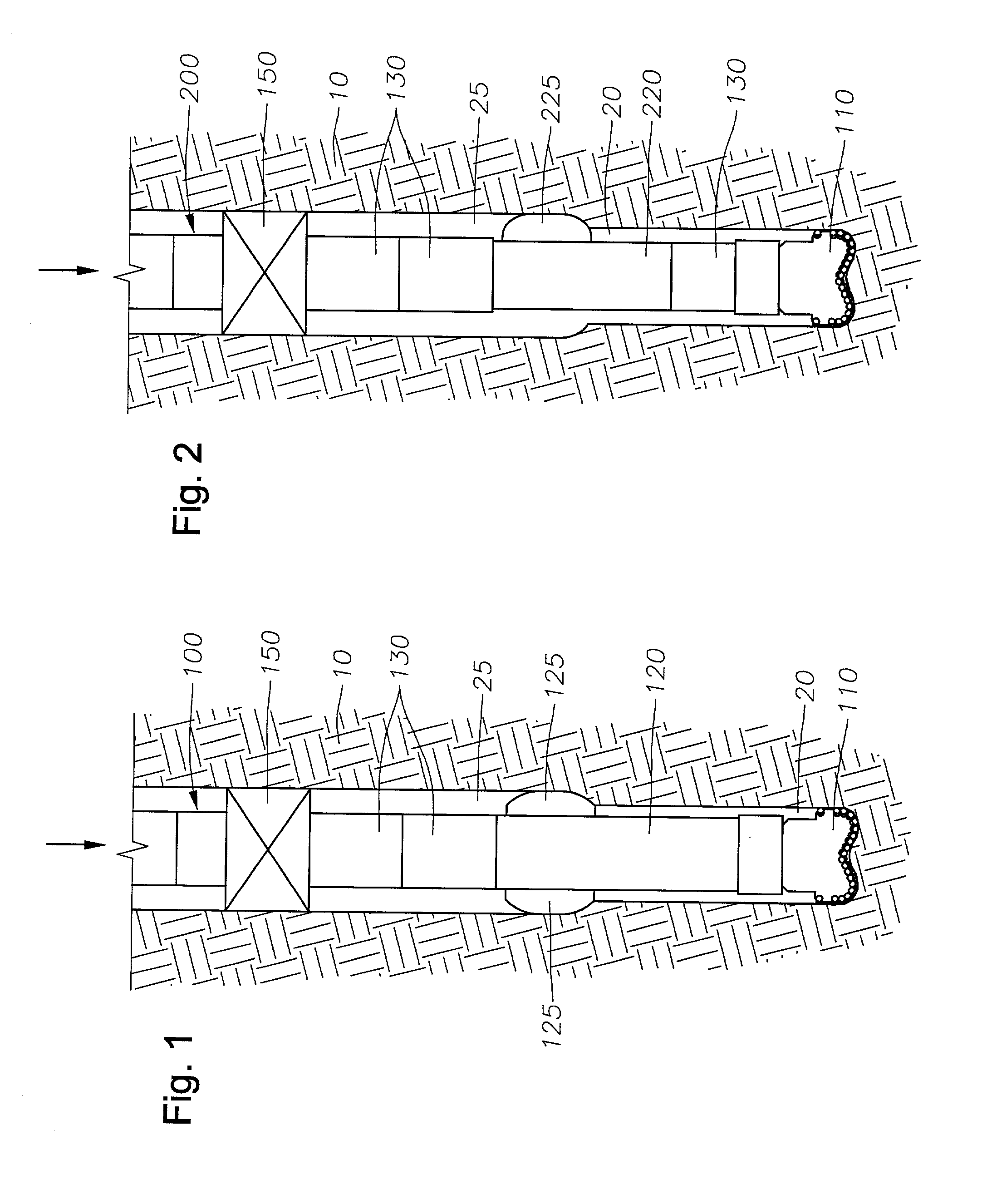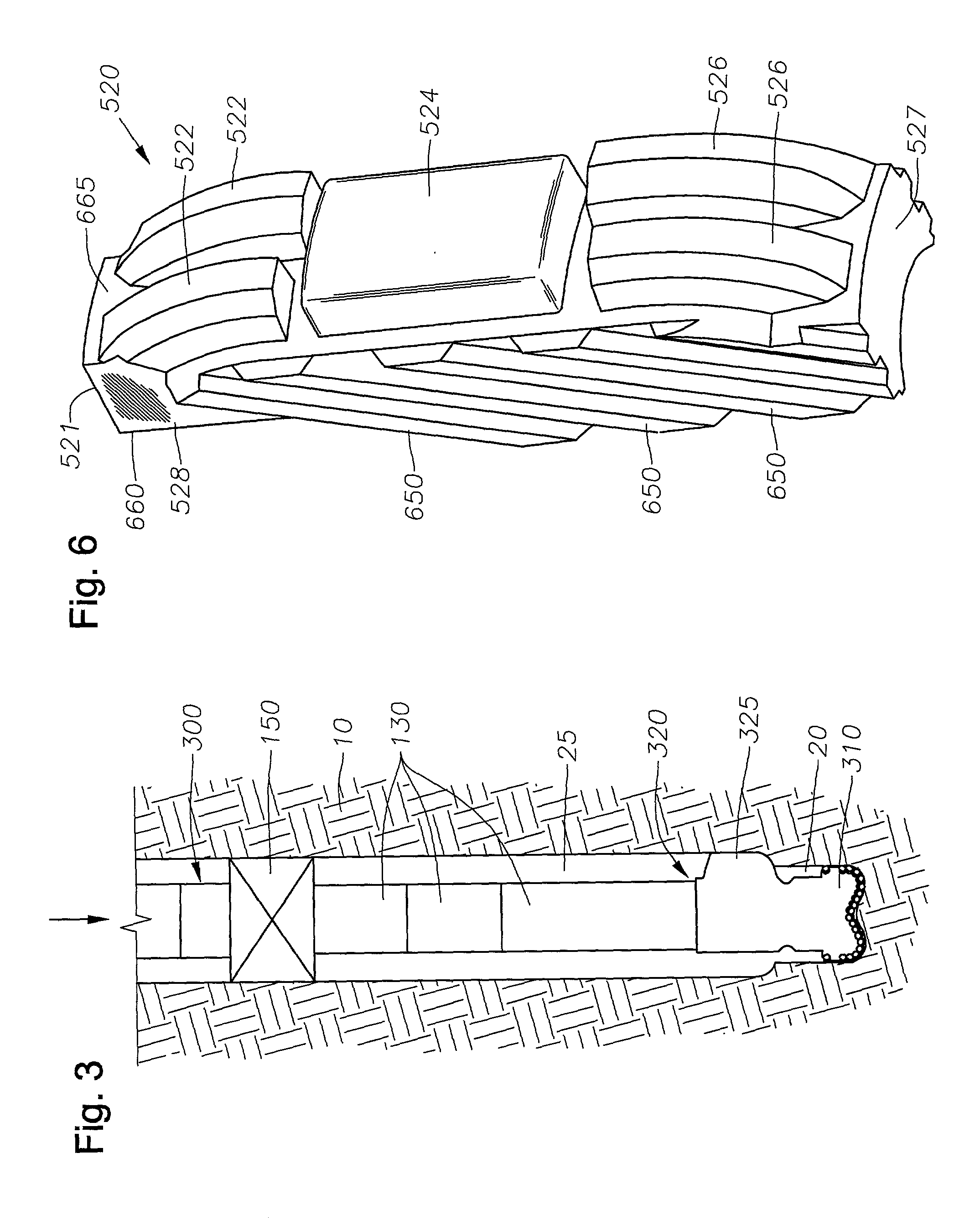Expandable underreamer/stabilizer
a stabilizer and underreamer technology, applied in the field of expandable underreamer/stabilizer, can solve the problems of limiting the annular area available for cementing operations, affecting the hydraulic capacity of the underreamer, and affecting the strength of the underreamer
- Summary
- Abstract
- Description
- Claims
- Application Information
AI Technical Summary
Benefits of technology
Problems solved by technology
Method used
Image
Examples
Embodiment Construction
[0020] The preferred embodiments of the present invention feature a downhole expandable tool that may be used as an underreamer to enlarge the diameter of a borehole below a restriction, or alternatively, may be used as a stabilizer to control the directional tendencies of a drilling assembly in an underreamed borehole.
[0021] In one preferred embodiment, the expandable tool comprises a body with a flowbore therethrough in fluid communication with the wellbore annulus. The tool alternates between a collapsed position and an expanded position in response to differential fluid pressure. More specifically, the tool is biased to a collapsed position and expands in response to differential fluid pressure between the flowbore and the wellbore annulus. In the expanded position, the flow area between the flowbore and the wellbore annulus is larger than when the tool is in the collapsed position. The tool may expand automatically in response to differential fluid pressure, or may be construct...
PUM
 Login to View More
Login to View More Abstract
Description
Claims
Application Information
 Login to View More
Login to View More - R&D
- Intellectual Property
- Life Sciences
- Materials
- Tech Scout
- Unparalleled Data Quality
- Higher Quality Content
- 60% Fewer Hallucinations
Browse by: Latest US Patents, China's latest patents, Technical Efficacy Thesaurus, Application Domain, Technology Topic, Popular Technical Reports.
© 2025 PatSnap. All rights reserved.Legal|Privacy policy|Modern Slavery Act Transparency Statement|Sitemap|About US| Contact US: help@patsnap.com



